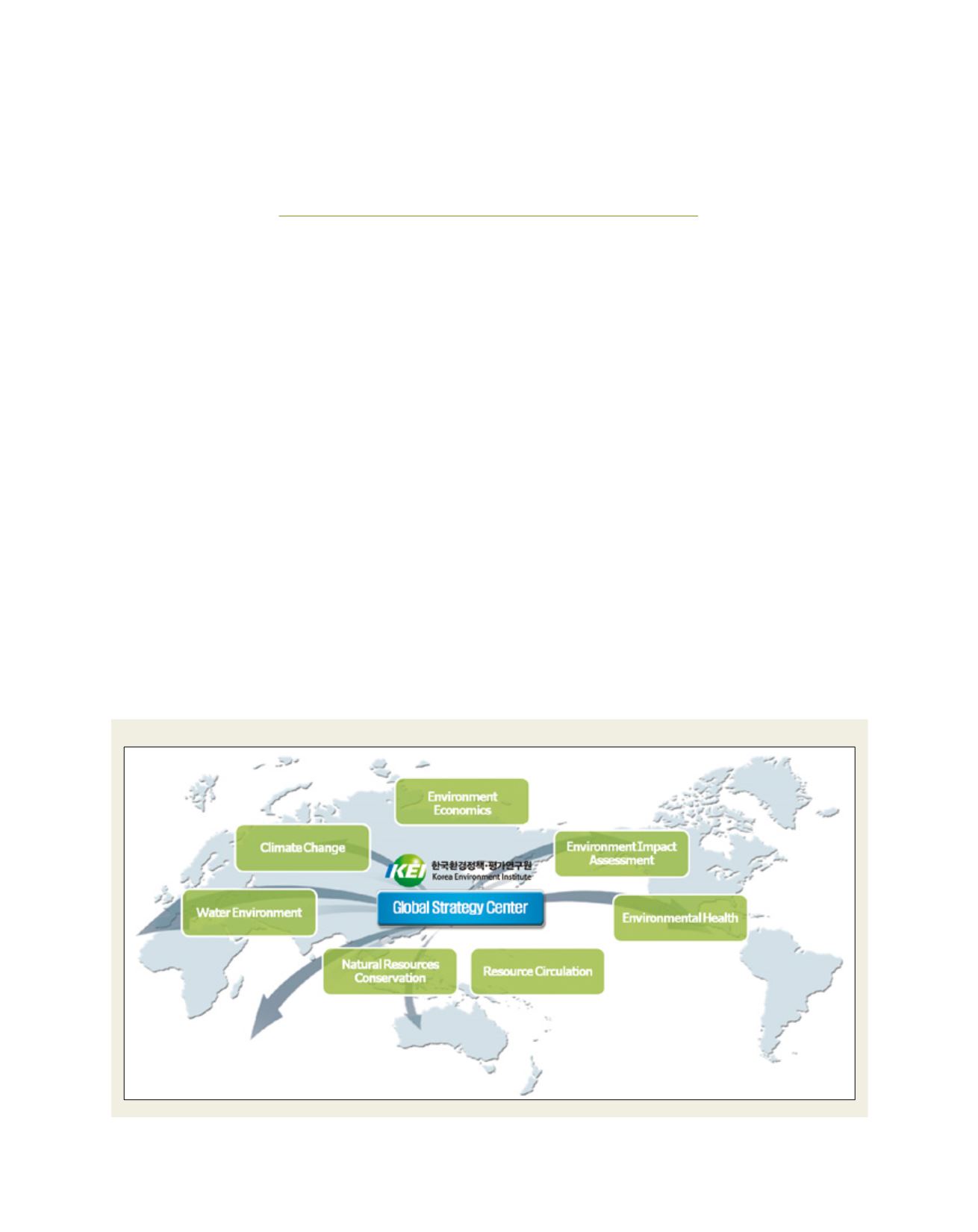

[
] 295
KEI’s international collaboration
on water-related research
Tae Ho Ro, Eulsaeng Cho and Jun Hyun Park, Korea Environment Institute
T
he Korea Environment Institute (KEI) is a leading
national think tank on environmental policies and envi-
ronmental impact assessment. KEI was established by
the Korean Government in 1993 as a public research institute.
It has been at the heart of development of the environmental
agenda in Korea for the past 20 years. As part of the Korea
Council of Economic and Social Research Institutes under
the Prime Minister’s Office, KEI strives to be a world-class
environment policy research institute pioneering a sustainable
society. Through cutting-edge research and rigorous analysis,
KEI is dedicated to providing future-oriented environment
policy research that can benefit humanity. KEI’s research
programmes focus on environmental economics, climate
change and air quality, environmental assessment, water
environment, natural resource conservation, land planning,
resource circulation and environmental health.
Building on its 20 years of experience in environment policy
research, KEI has taken its work to a new level through interna-
tional joint research and partnerships. With a growing recognition
of the need for enhanced collaboration and coordina-
tion beyond the national level, KEI launched its Global
Strategy Center (GSC) in June 2010 to extend its body
of work to regional and global levels. GSC works as
the main implementing arm of KEI’s global partnership
and outreach activities, focusing especially on technical
cooperation and knowledge-sharing with developing
countries. It is intended that GSC will become a sustain-
able development cooperation hub, which will serve as
a global gateway for KEI and provide a platform for
joint research and knowledge-sharing.
Research activities: water resources
In recent years, the issue of water security has been
discussed on the global political agenda, earning
attention from national governments at the highest
level. Recent events and discussions have highlighted
that water security issues have implications for devel-
opment and poverty eradication. In particular,
The
Future We Want
– the outcome document of the
I
nternational
C
ooperation
on
W
ater
S
ciences
and
R
esearch
As a sustainable development cooperation hub, GSC provide a platform for joint research and knowledge-sharing
Source: KEI


















